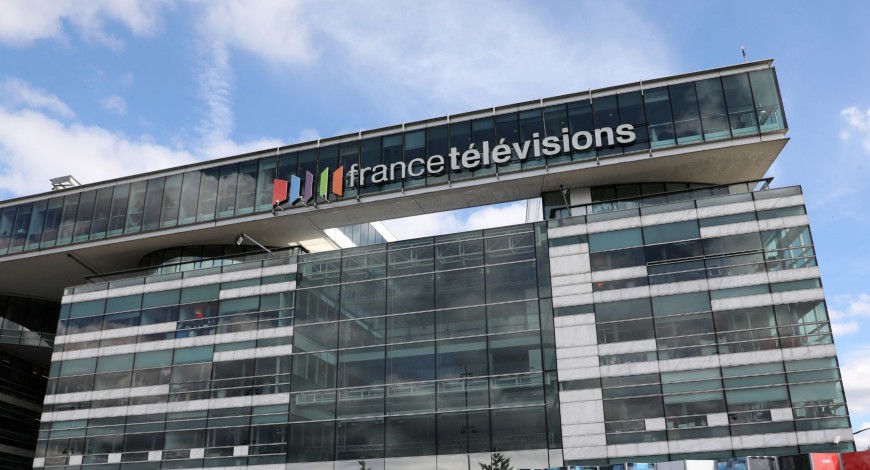International Circuit
French public broadcasting sector on strike, uncertain about its future

French audiences witnessed a large amount of music and reruns on state-owned channels on Tuesday as the public broadcasting industry went on strike, amidst fears for its future and independence.
Employees of state-owned companies France Télévisions, Radio France, France Médias Monde and INA were urged by unions to demonstrate in order to protect the companies’ access to funding.
During the presidential elections, French President Emmanuel Macron pledged to relieve pressure on the French people’s finances. Accordingly, on July 6, the government is to present a bill on purchasing power, which would effectively put an end to the annual licence fee paid by 23 million households that own a television set.
“Contribution to public broadcasting will be abolished permanently from this year and the financing of public broadcasting will be ensured in compliance with the constitutional objective of media pluralism and independence”, a statement issued on May 11 by the Council of Ministers read.
As of 2021, the annual fee amounted to €138 in mainland France and €88 in the French overseas territories, creating a total budget of €3.14 billion for public broadcasters. A further €560 million was added to this budget from the State, in lieu of the contributions from lowest-income households who are exempted from paying the fee, as stated in a Senate report published June 8.
Although nothing has been set in stone yet, the government’s proposal is to remove the obligation of paying the fee, instead adding a line to the government budget as a new method of financing. The governmental contribution may be subject to change and reconsideration each year depending on political priorities.
“Abolishing the licence fee, an allocated revenue, means making public broadcasting more precarious and impoverished by transferring it to the government budget and making it dependent on constant political choices and pressures”, the unions argued in a joint press release, stressing that “the licence fee is currently the only permanent method of financing that guarantees the independence of public broadcasting.”
This alternative is not expected to face sufficient opposition in the French National Assembly, as the conservative party Les Républicains and Marine Le Pen’s far-right party Rassemblement National have already spoken out in the past in favour of abolishing the licence fee – or even, in the case of Le Pen’s party, privatising public service broadcasting.
Merging channels and stations as a solution
A key measure of the Senate’s control commission on public funding is the possibility of a merger of channels and stations – a step already taken by TF1 and M6, two private television channels.
According to the senators, “while the French public broadcasting sector remains – contrary to almost all European public broadcasting sectors – divided between opposing structures, the private players have begun a process of grouping together.” The lawmakers expressed concern over the risk of “marginalisation” of the public broadcasting sector in the face of the increasing power and presence of new American streaming platforms.
However, stakeholders in the broadcasting industry fear that a convergence of public channels and stations would inevitably lead to job cuts, as well as reduced diversity of output.
Radio France’s president, Sybile Veil, told Le Figaro that she was not in favour of such a merger, saying that “it is not Radio France that will help France Televisions to withstand Netflix nor France Televisions that will help us in the face of Spotify.”
The new Minister of Culture, Rima Abdul-Malak, said “it will all be debated in Parliament” on France Inter radio station last week. Euractiv








